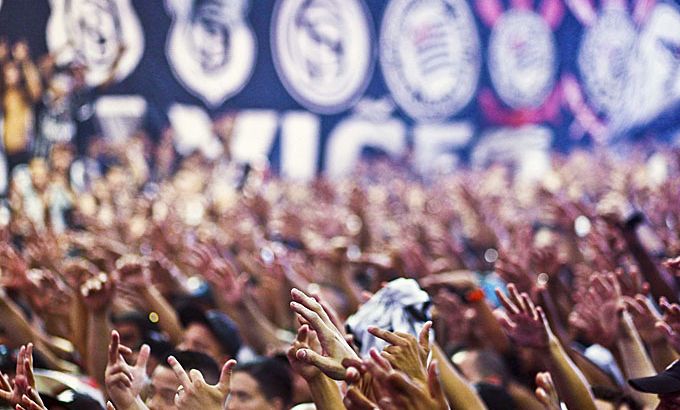
Scoring big: The global world of football
Empire explores the politics and power of the world’s most popular sport, and the global implications of the game.
Football, the people’s game, is played by millions and watched by billions.
It is more than just a sport, more than tournaments and trophies, more than big business.
|
“Discrimination is not in our game. Discrimination is in the world. We are a mirror of our world, in football. And you have discrimination and you have racism in football. We are fighting against that, but it can only be by solidarity.“ Sepp Blatter, the president of FIFA |
The game can be an engine of conflict or a force for change, transcending borders and cultural backgrounds and forging new affiliations and identities.
Football has become a big-money business, and as football teams soar in value, they have become toys for billionaires.
In 1992, Rupert Murdoch signed a satellite TV deal with the newly-formed Premier League, making him a major force in globalising the game. Earlier this year, the league signed broadcast deals worth some $4bn.
Today, half the Premier League is completely foreign-owned – with US Americans owning five teams.
Manchester City, the 2011-2012 champions of the Premier League, is owned by Sheikh Zayed of Abu Dhabi, who is said to have pumped nearly $1bn into it. Abu Dhabi’s Etihad Airways paid a fortune to name the stadium. And an Argentinian player the team spent more than $40m to acquire, scored the winning goal of the last season.
|
FIFA president Sepp Blatter says discrimination exists in the world and football merely reflects that |
Coaches and players move as easily across national lines and national boundaries as capital and trade does. Countries in Europe that have histories of racism or xenophobia now find themselves accepting Muslim players or players of colour and cheering for them on the field.
Once entirely British, today, more than 60 percent of Premier League players come from overseas. As professional teams have integrated, so have many national teams. The rosters of England, France and Germany are filled with players from former colonies, or children of immigrants.
In an exclusive interview, Marwan Bishara asks Sepp Blatter, the President of Federation Internationale de Football Association (FIFA), about the implications of the changing state of football, from Palestine to Europe to Africa, Asia and the Americas.
Empire also travels to Egypt, and looks at the role that football fans have played in the revolution, and the role it continues to play as the country looks toward the future. Al Ahly, Africa’s most decorated team, boasts an estimated 50 million supporters, and has dominated Egyptian football for nearly 100 years. Under Mubarak, Ultras Al Ahlawy, the team’s legendary fan association, often clashed with the police but they were apolitical. However, when the Arab Spring hit Egypt, the Ultras called for the overthrow of the military regime that succeeded Mubarak, and led massive protests against it.
|
“They are die-hard football fans. And they will defend their team for anything. But now, it’s not just their team and it’s not just football. It’s the revolution. They have to defend the revolution.” Menna Elshishini, an Egyptian activist |
Empire asks, what does the future hold for the people’s game?
Joining us as interviewees: Sepp Blatter, the FIFA president; Andy Appleby, the chairman and co-owner of the Derby County Rams; Dan Jones, the lead partner of the Sports Business Group at Deloitte; Dave Zirin, a sports editor at The Nation magazine; Menna Elshishini, an Egyptian activist; Ramy Essam, an Egyptian musician and activist; and Shiko, a member of the Egyptian Ultras Al Ahlawy.
And we discuss how football is changing the world, and the world is changing football, with our guests : Mina Rzouki, a writer and broadcaster for The Daily Mirror and the World Football Show television programme; Simon Kuper, a columnist for The Financial Times and the author of several books about football including Soccernomics; Ashling O’Connor, a sports news correspondent for The Times of London; and Jimmy Burns, a freelance journalist and author of several books, most recently La Roja: How Soccer Conquered Spain and How Spanish Soccer Conquered the World, a history of Spanish national football.
Click here for more Empire. |
